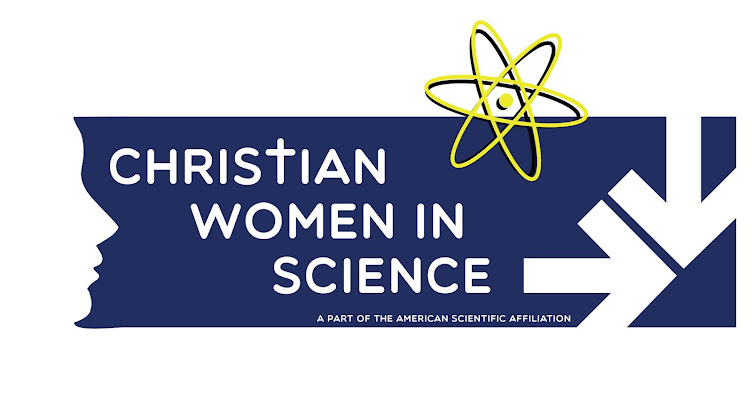Robert Grosseteste 1168-1253
Erasmus 1466-1536
Nicholas Copernicus 1473-1543
Francis Bacon 1561-1627
Galileo Galilei 1564-1642
Johannes Kepler 1571-1630
Blaise Pascal 1623-1662
Michael Farraday 1791-1867
James Clerk Maxwell 1831-1879
George Washington Carver 1864-1943
Georges Lemaître 1894-1966
Oliver R. Barclay 1919-2013
V. Elving Anderson 1921-2014
Raymond V. Damadian 1936-Present
Austin L. Hughes 1949-2015
Ian H. Hutchinson 1951-Present
Roger John Williams (1893–1988) was Christian and a biochemist who named folic acid and discovered pantothenic acid (vitamin B5). He was a member of the National Academy of Sciences and President of the American Chemical Society. He founded and directed the Clayton Foundation Biochemical Institute at the University of Texas (now called the Biochemical Institute). In 1972, he served as a member of President Nixon's Advisory Panel on Heart Disease.
V. Elving Anderson 1921-2014
Raymond V. Damadian 1936-Present
Austin L. Hughes 1949-2015
Ian H. Hutchinson 1951-Present
Roger John Williams (1893–1988) was Christian and a biochemist who named folic acid and discovered pantothenic acid (vitamin B5). He was a member of the National Academy of Sciences and President of the American Chemical Society. He founded and directed the Clayton Foundation Biochemical Institute at the University of Texas (now called the Biochemical Institute). In 1972, he served as a member of President Nixon's Advisory Panel on Heart Disease.
Roger's older brother, Robert Runnels Williams (1886–1965), also was a Christian and a chemist who discovered the cure for Beriberi. In 1936 Williams made the correct structural determination of vitamin B1 and designed a synthesis for it. Williams named vitamin B1 “thiamin” and submitted it for addition to the American Medical Association’s publication New and Non-Official Remedies. The American Chemical Society added an e to the end of the name to reflect the amine nature of the vitamin. Thiamine is found in whole-grain cereals, meats, yeast, and nuts and acts as a cofactor in the enzymatic reaction that breaks down carbohydrates, alcohol, and some proteins.
Robert and Roger were the sons of pioneer missionaries to India. Their only sister, Alice Williams Linsley, was a Professor of Philosophy at Redlands University in California.
Women should be portrayed equally in images such as the one above. Women scientists of the Christian Faith include:
Hildegard of Bingen (1098-1179)
Maria Gaetana Agnesi (1718-1799)
Mary Anning (1799-1847)
Agnes Giberne (1845-1939)
Sister Mary Celine Fasenmyer (1906-1996)
Rhoda Hawkins (living)
Katharine Hayhoe (living)
Anne Marie Thro (living)
Leslie Wickman (living)
Jennifer Wiseman (living)
Robin Pals-Rylaarsdam (living)
Chris Done (living)
Katherine Blundell (living)
Ruth Hogg (living)
Related reading: Who Laid the Foundations of Science?; Technology-STEM Education for Christian Schools; Science and Technology in the Ancient World; Prehistoric Humans used Plants Medicinally; The Ancient Nubians Used Antibiotics; The American Scientific Affiliation: A Personal Note; Christian Schools and STEM Education; More Christian Women in Science and Math
Robert and Roger were the sons of pioneer missionaries to India. Their only sister, Alice Williams Linsley, was a Professor of Philosophy at Redlands University in California.
Women should be portrayed equally in images such as the one above. Women scientists of the Christian Faith include:
Hildegard of Bingen (1098-1179)
Maria Gaetana Agnesi (1718-1799)
Mary Anning (1799-1847)
Agnes Giberne (1845-1939)
Sister Mary Celine Fasenmyer (1906-1996)
Rhoda Hawkins (living)
Katharine Hayhoe (living)
Anne Marie Thro (living)
Leslie Wickman (living)
Jennifer Wiseman (living)
Robin Pals-Rylaarsdam (living)
Chris Done (living)
Katherine Blundell (living)
Ruth Hogg (living)
Today there are more opportunities for women to receive the education and training necessary to advance in the many fields of science. It has been claimed, however, that in the past women played a minimal role in Science and the contribution of Christian women is even more minimal due to male dominance in the Church. While science has certainly been dominated by men, there is no doctrine or tradition in Christianity that inhibits women from being involved in science. If men have dominated, it is because in centuries past they were the ones who received the more advanced education.
It is also likely that the contributions of women in science and technology have been overlooked rather consistently by both secular historians and Christian historians. If the historian is looking for inventions and discoveries that bring about paradigm shifts, they will miss the contributions of many women. For centuries, women were discovering the healing properties of plants (phytomedicine), experimenting in chemistry to create dyes (remember Biblical Lydia?), and exploring methods for creating fibers and developing textile technologies. They invented things like buttons and butter churns, but these do not lead to paradigm shifts, only to an improved quality of life.
It is also likely that the contributions of women in science and technology have been overlooked rather consistently by both secular historians and Christian historians. If the historian is looking for inventions and discoveries that bring about paradigm shifts, they will miss the contributions of many women. For centuries, women were discovering the healing properties of plants (phytomedicine), experimenting in chemistry to create dyes (remember Biblical Lydia?), and exploring methods for creating fibers and developing textile technologies. They invented things like buttons and butter churns, but these do not lead to paradigm shifts, only to an improved quality of life.
Related reading: Who Laid the Foundations of Science?; Technology-STEM Education for Christian Schools; Science and Technology in the Ancient World; Prehistoric Humans used Plants Medicinally; The Ancient Nubians Used Antibiotics; The American Scientific Affiliation: A Personal Note; Christian Schools and STEM Education; More Christian Women in Science and Math


No comments:
Post a Comment